
Hoi An is very special city: its buildings and the disposition of its streets are the result of a mixture of indigenous traditions and foreign influences. This ancient city was a trading port in Southeast Asia from the 15th to the 19th century. It presents a collection of 1,107 wooden frame buildings that are very well preserved, including religious monuments (pagodas, ancestral places of worship, etc.). The wood is often engraved with traditional patterns. In general, the buildings are open both sides, on the street for the entry of customers, and also on the river to allow loading and unloading of goods transported by boat.
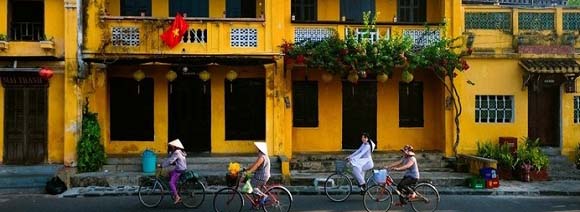
The travelers can visite this city all year round. Clouds and cold are prevented at the north of Hoi An because of the Pass of Clouds. The temperature rarely exceeds more than 36°C and rarely drops below 20°C. The rainy season begins in October, ends in late December.
From January to February: coolest time with monsoons coming from the north. The sky is a little gray and it makes drizzle sometime.
From March to May: best time to travel to Hoi An: even if it is quite hot in May (the highest temperatures can rise to 36°C) but the weather is very nice and dry.
From June to September: It’s summer: hot and humid. Temperatures can reach up to 36°C.
From October to December: rainy season and tropical storms. The city can be attacked from time to time by floods or storms. Visiting activities can be canceled for one or two days.
The city of Hoi An is about 30km from Da Nang, 130km from Hue and about 850km from Hanoi or Sai Gon. Travelers can get there by private car, local bus, train or plane. Da Nang Airport is 25 km from the city.
Hoi An is one of the most fascinating cities in Vietnam thanks to its alleys, ancient houses, local markets, green countryside and welcoming people. Its old quarter is a treasure with temples, pagodas, the old port and more than 900 ancient houses built in Vietnamese, Chinese and Japanese architecture.
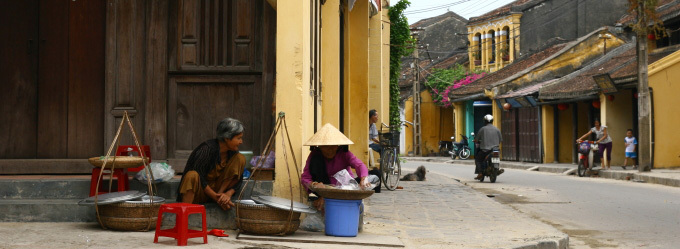
A nice biking excursion in the countryside will help you discover green gardens, smiling villagers and a beautiful beach off the beaten track. After a riding 12 km in tropical heat, you will have an opportunity to cool off in the sea. Swimming in emerald-colored water, 30 minutes of massage at the edge of the water and a fruit-based lunch you just can say that life is good!
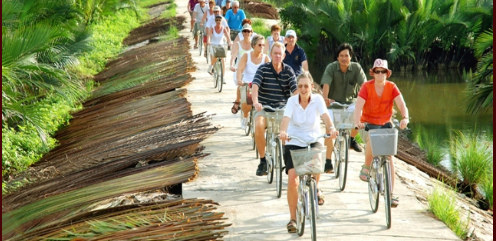
A beautiful biking tour in the surroundings of Hoi An will help you discover a picturesque countryside that is a very little known to travelers, smiling villagers and craft villages as such: carpentry at Kim Bong, weaving straw mats at Cam Thanh, basketry at Cam Kim… Stop at Cam Thanh to learn local fishing technique and then take part in a round bamboo boat race to finish your beautiful day of discovery.
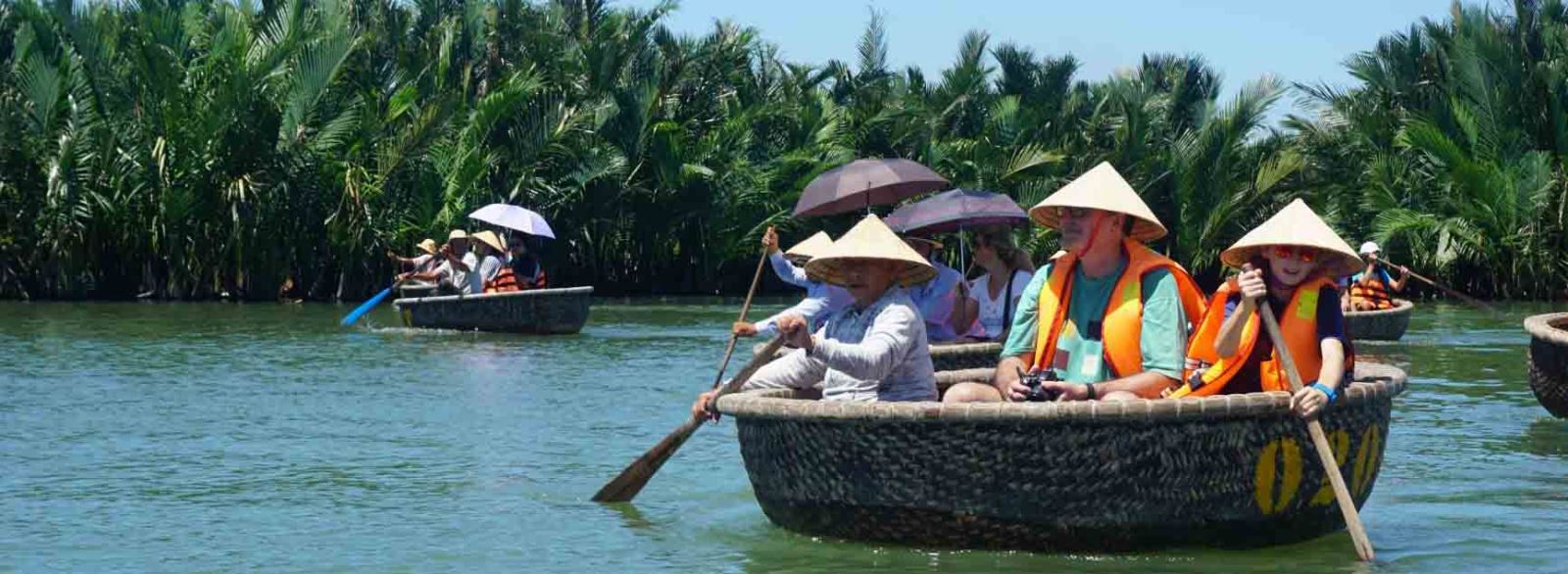
Located not far from An Bang beach and 3 km from the old town, Tra Que, an ecological village, is an exceptional and timeless place. By bicycle, travelers have an opportunity to discover the daily life of local gardeners.
Close to the old town and the old quarter, local market of Hoi An is a site to be recommended. It is very popular with villagers as well as foreign tourists. You will find a wide choice of food products: saffron, cinnamon, star anise and also exotic fruits: mango, dragon fruit, durian... The market is wellknown also for its tailors who have a their owned section of the market. Having silk clothes made is cheaper here than anywhere else in Hoi An, and you can get what you asked for within 24 hours.
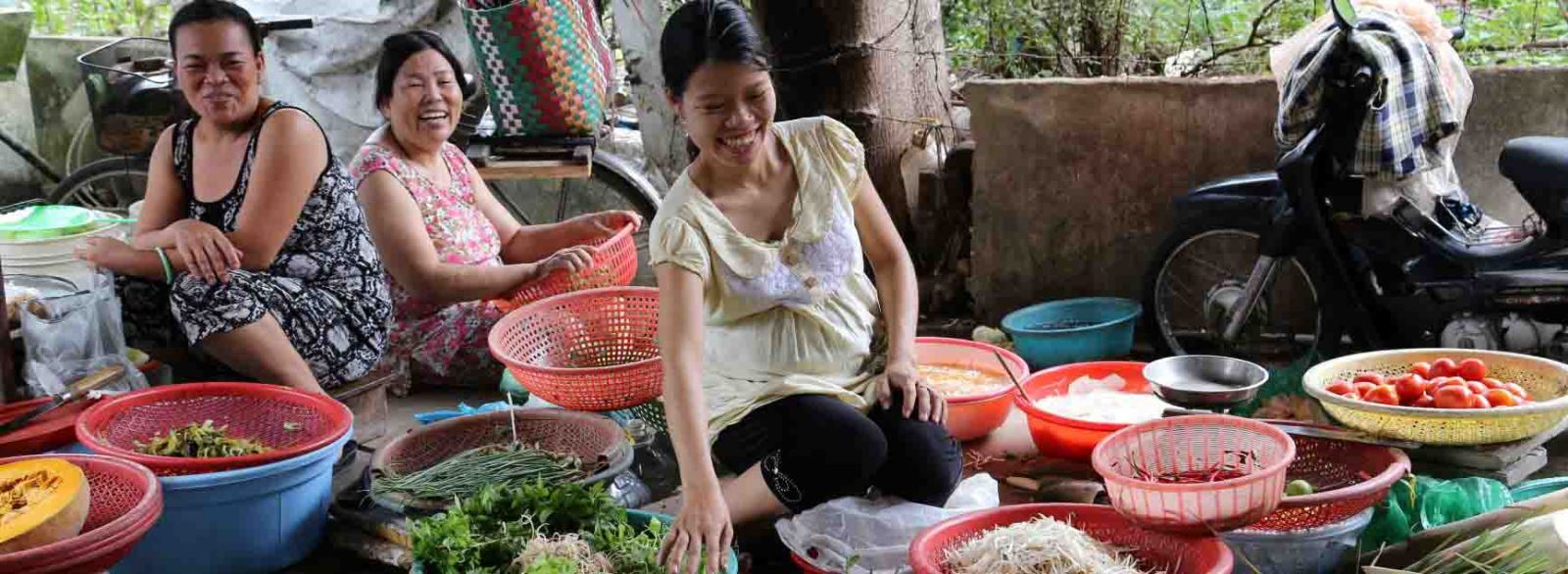
Precious Heritage is a private museum opened by a French photographer: Réhahn Coqueville. This famous man took many years to travel to all corners of Vietnam from north to south. Each photo, each habit or object in the museum tells a story: a person's destiny, the history of a village or an ethnic culture.
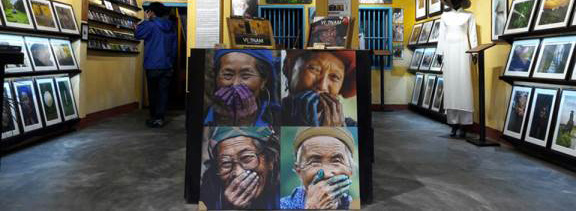
An immersion in the culture of ethnic minorities of Upper Tonkin
A journey related to nature, biodiversity to discover the lush nature of Vietnam
The magic of Halong Bay, Tam Coc landscape, the old-fashioned charm of the streets
From Halong Bay to the Mekong coconut jungles, from craftsmen to the imperi
A dreamy stroll from north to south to embrace local life